College of Natural Resources
Does ‘psychic numbing’ impact conservation fundraising?
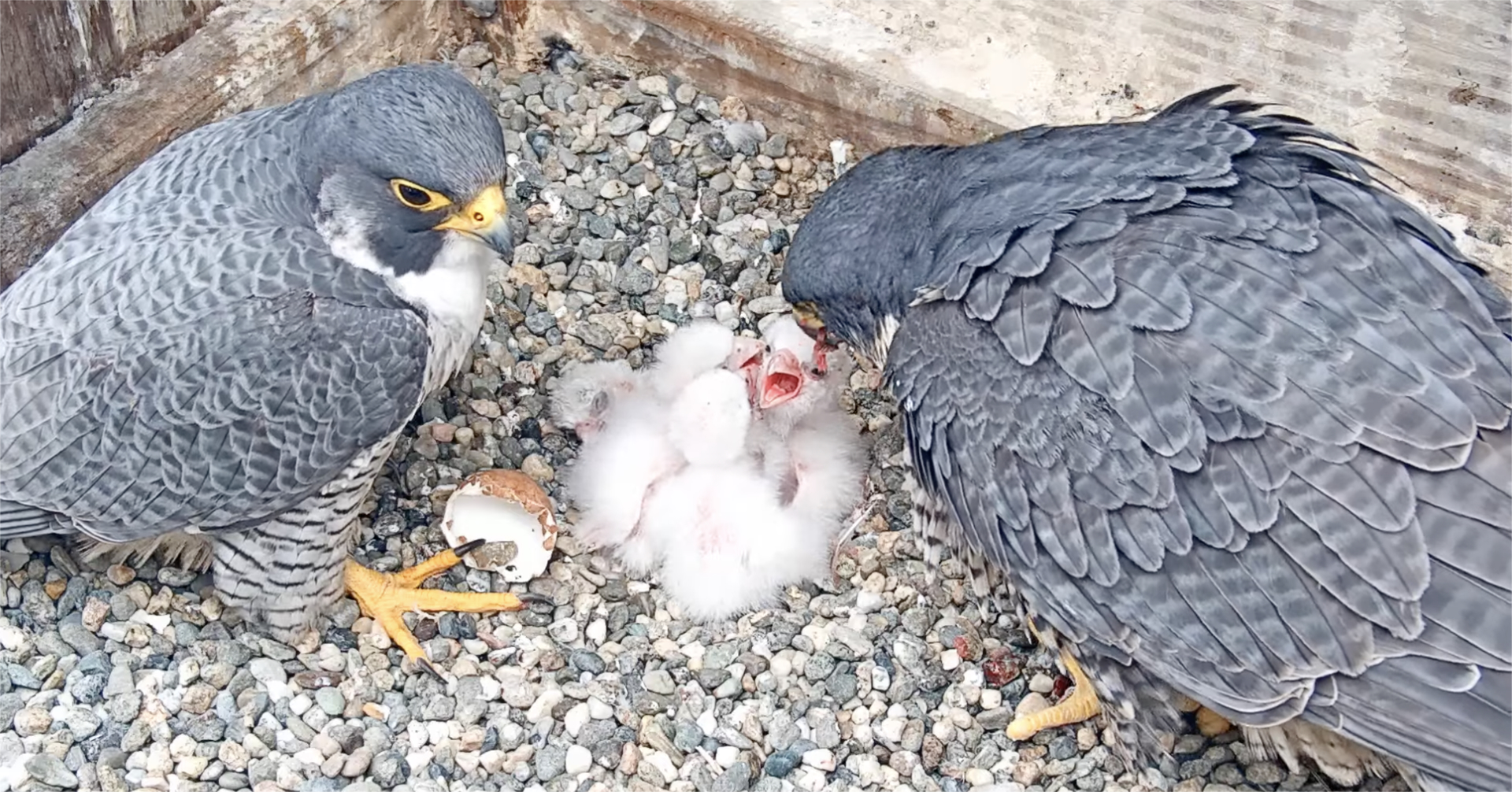 [image caption]
[image caption]
Annie the peregrine falcon (right) feeds her new chicks while Archie stands by. Photo courtesy of Cal Falcons.
A world-famous pygmy hippopotamus. An escaped Eurasian eagle-owl. A larger-than-life infant king penguin. These animals captured the hearts and minds of millions in 2024 and became animal celebrities. But when you look beyond their status as a viral phenomenon, flagship species such as these sometimes play an important role in conservation efforts.
Many people show compassion for the challenges these flagship species face, but as the number of endangered species continues to rise, conservationists may find it difficult to motivate people to support the thousands of species also needing attention.
To better understand what motivates the public to donate towards conservation efforts for endangered species, undergraduate Alexandra Boren and Environmental Science, Policy, and Management professor Alejandra Echeverri examined the unique case of Annie, one of UC Berkeley’s celebrity peregrine falcons, using concepts from the fields of social psychology and conservation marketing. Published today in Frontiers in Conservation Science, their study offers new insight into the impact of celebrity animals and the consequences of what is known as psychic numbing in endangered species conservation.
According to Echeverri, psychic numbing refers to the desensitization of the human brain when exposed to large-scale suffering. “The concept has been explored in relation to human suffering, and flagship charismatic animal species are recognized as key tools in conservation marketing,” added Boren, a fourth-year environmental sciences student and the study’s lead author. “However, there is a gap in understanding how these two concepts can be combined to encourage public donations to support endangered species.”
Annie's AbsenceIn late February, Cal Falcons reported that Annie and her latest mate, Archie, hadn’t been seen on campus in nearly two months. February typically is when Annie engages in pair bonding with her mate and readying their gravel nest box perched on top of UC Berkeley’s 307-foot-tall Campanile. Cal Falcons reports that across the Bay Area, 40% of peregrine territories are currently unoccupied, and the ongoing outbreak of highly pathogenic avian influenza is believed to be a cause. No evidence of a sick or dying falcon has been found on the bell tower, and the falcons could successfully nest as late as May and raise chicks. Read more about their disappearance at Berkeley News, and stay up to date with new developments at the Cal Falcons website.
From the near-extinction of a species to the stardom of a local individualPeregrine falcon (Falco peregrinus) populations experienced drastic declines across North America during the 20th century, with the bioaccumulation of the insecticide DDT heavily contributing to the severe population loss. The peregrine falcon was listed as endangered under the Endangered Species Conservation Act of 1969, and again under the Endangered Species Act in 1973. Extensive reintroduction efforts, complemented by the banning of DDT, allowed the declassification of the peregrine falcon as an endangered species in 1999.
In December 2016, nearly two decades after the species was delisted, two peregrine falcons—later named Annie and Grinnell—were observed setting up a nest in the UC Berkeley Campanile. While their arrival was celebrated by students and ornithologists alike, interest in the falcons began to reach new heights in January 2019, when the newly founded organization Cal Falcons kicked off their social media presence and their webcam project that provides livestream viewing of the nests at the Campanile.
Boren said the idea of using Annie as a research topic emerged after reaching out to Echeverri last January to discuss opportunities in her lab. “Annie has become an integral part of the Berkeley community, and students and faculty are vested in the well-being of Annie and her family,” she explained. “We thought ‘Annie the celebrity Peregrine Falcon’ would be the perfect case study to evaluate the impact of celebrity animals and psychic numbing in conservation marketing.”
Messaging mattersThe authors also evaluated the qualitative impact of conservation messaging with celebrity animals. They included a word association task at the beginning and end of each survey, prompting respondents to offer words they associate with endangered species. The researchers then classified the words according to sentiment (positive, negative, neutral) and according to category (animal, emotion, human, population size, policy, science). They found that the messaging condition significantly impacts the types of words that participants associate with endangered species.
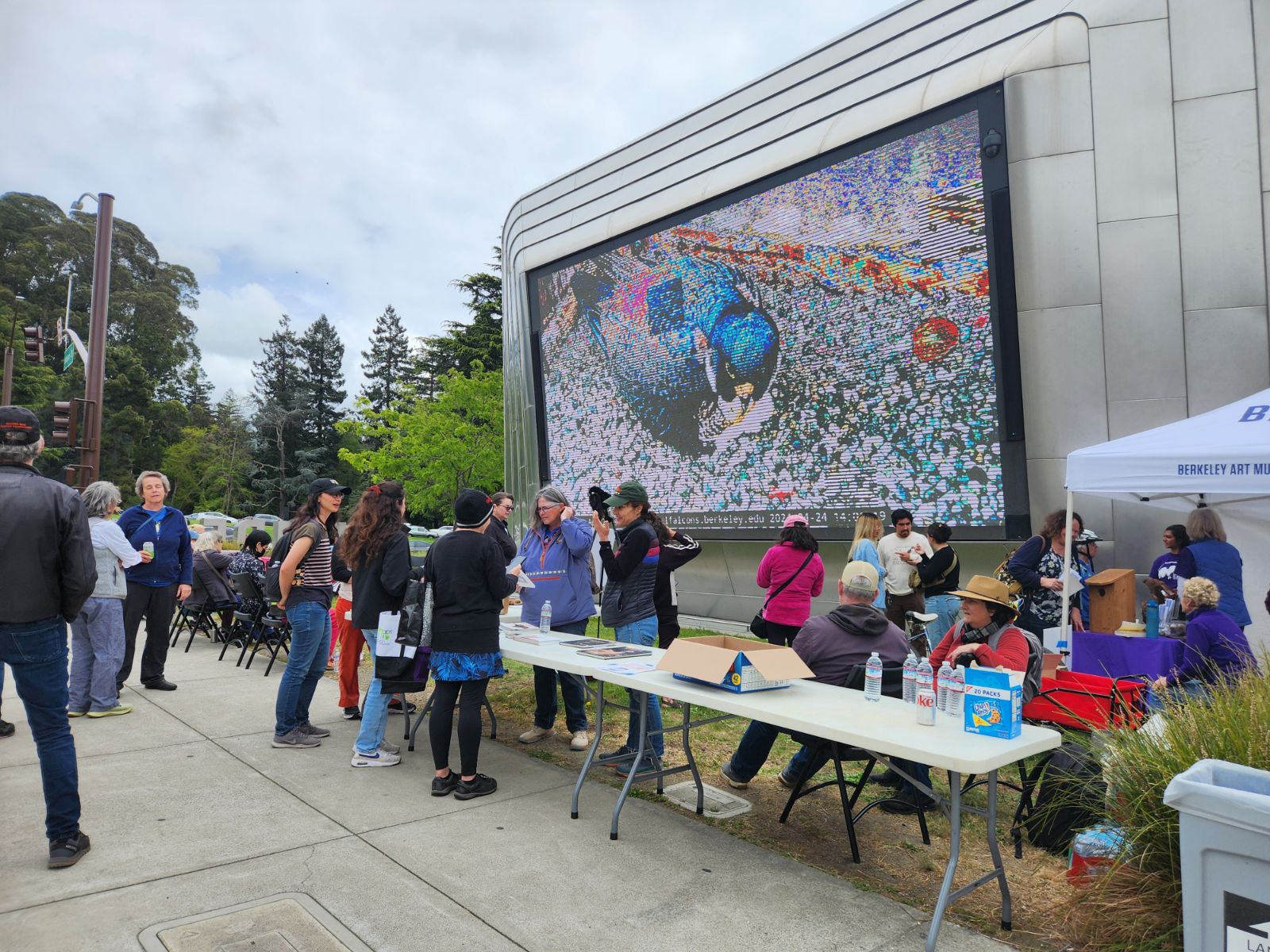 [image caption]
[image caption]
The Cal Falcons “hatch day party” celebrating the arrival of Annie’s 2024 chicks. Photo courtesy of Cal Falcons.
Participants who read Annie’s story were more likely to use positive, emotionally charged words like “Protect,” “Save,” and “Conservation,” whereas those who read the statistical information about peregrine falcon populations were more likely to use neutral words such as “Rare,” “Human,” and “Climate.” “This suggests that celebrity animal stories may have the power to deepen people’s emotional connection to conservation,” said Boren, who noted that the increase in neutral words “reinforces the concept that statistics may lack the appeal necessary to sway our emotions and inspire action.”
Their results reveal a deeper understanding of the role of messaging in endangered species conservation and its power in shaping public attitudes. Echeverri said the discrepancies between the quantitative donation impact and the qualitative word association impact of the messaging conditions “highlight the attitude-intention-behavior gap, where positive attitudes towards endangered species conservation do not necessarily translate into behavioral intentions or donation behavior.”
The authors discuss several directions of future research that could stem from this study, such as assessing if there is a varying presence of psychic numbing across different species and if negatively framed messages about individual animals are more effective at increasing donation amounts. “The field of conservation psychology is still nascent”, said Boren, “and our findings highlight the need for further research to better understand the psychological mechanisms underlying conservation-related decisions.”
Read the full study at Frontiers in Conservation Science.
Water system consolidations improve water quality, infrastructure
 March 05, 2025
March 05, 2025 Kristin Dobbin, a Cooperative Extension professor in ESPM, led the first-of-its-kind survey of water systems across California.
Creating a ‘rightful presence’ for the Ohlone community
 March 04, 2025
March 04, 2025 The campuswide ‘ottoy initiative will integrate native plants and Ohlone cultural education at the Oxford Tract, and add native gardens to the Russell Research Station.
Watch: Documenting California’s most elusive mammal
 March 03, 2025
March 03, 2025 Ecosystem Management and Forestry alum Vishal Subramanyan, '24, and collaborator Prakrit Jain spoke to Berkeley News about capturing photos and video of the Mount Lyell shrew.
Mapping ocean acidification along the Pacific coast
 February 27, 2025
February 27, 2025 Rachel Carlson, an Assistant Professor in the Department of Environmental Science, Policy, and Management, spoke to NPR affiliate North State Public Radio about her career in marine science and research at the Bodega Marine Laboratory run by UC Davis.
Event: Agency, Urgency, and Hope—Science and Scientists Serving Society
 February 26, 2025
February 26, 2025 March 12 and 13, The Honorable Jane Lubchenco, Former Deputy Director for Climate and Environment at the White House Office of Science and Technology Policy, will deliver two lectures: one on science in the White House and another on a new narrative for the ocean.
How urbanization shapes coyote behavior and connectivity in LA
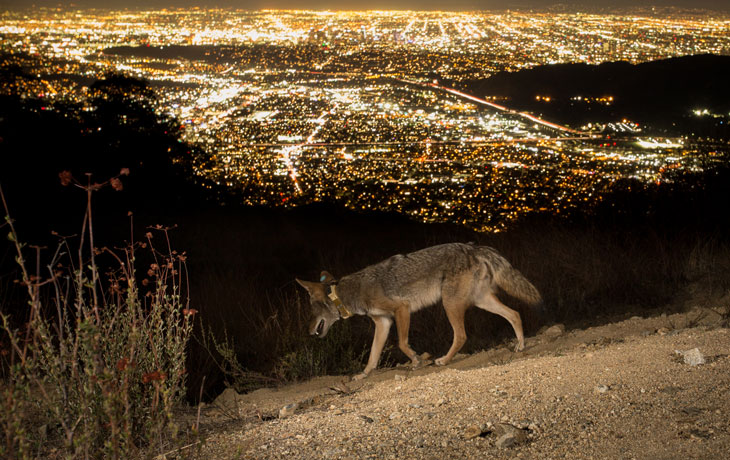 February 25, 2025
February 25, 2025 Wealth, pollution, and population density are strong predictors of how coyotes move around Los Angeles, according to a new study led by UC Berkeley researchers.
Diversity in coho salmon could be key to species survival
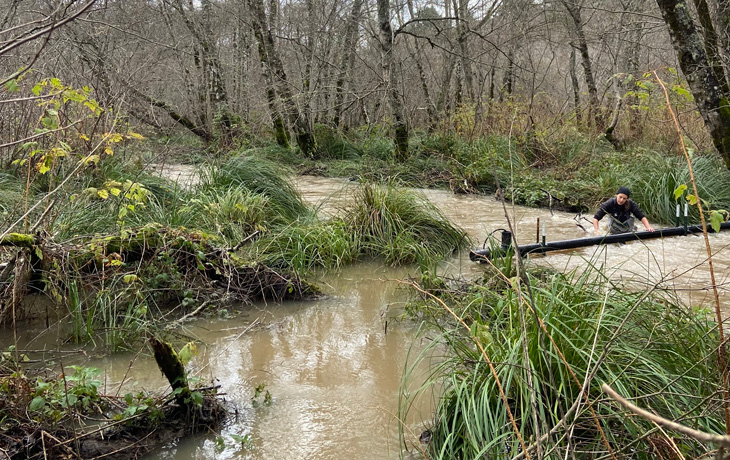 February 24, 2025
February 24, 2025 Experts from UC Berkeley and California Sea Grant have uncovered a new link between species diversity and resilience in coho salmon.
Climate change outpaces forest change in the Western interior
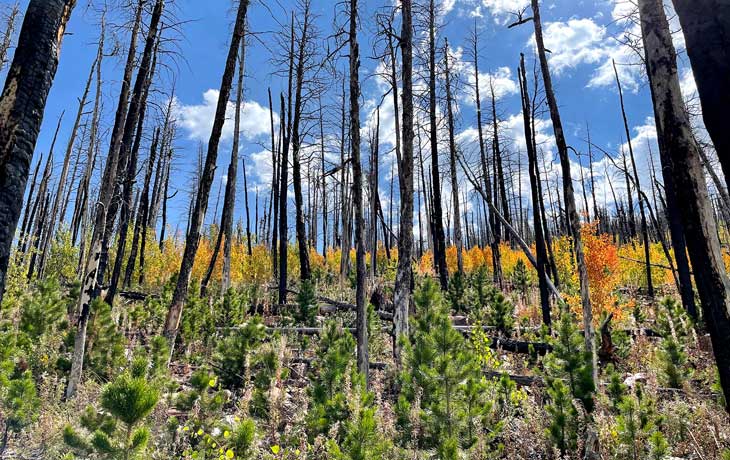 February 18, 2025
February 18, 2025 A study co-authored by ESPM professor Miranda Redmond found that forests are not regenerating fast enough to keep pace with climate change, wildfire, insects, and disease
Alum makes Forbes’ 30 under 30 list for healthcare
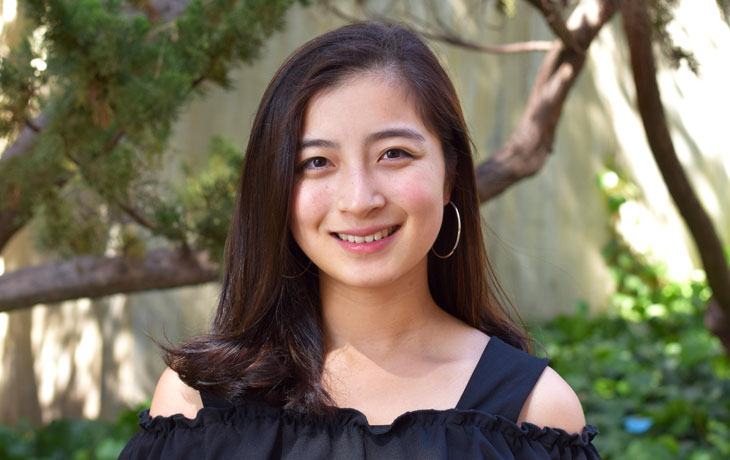 February 13, 2025
February 13, 2025 Yue Clare Lou, who earned both a BS and PhD in the Department of Plant and Microbial Biology, was recognized for her work toward the creation of next-gen immune boosters.
Margaret Torn elected to National Academy of Engineering
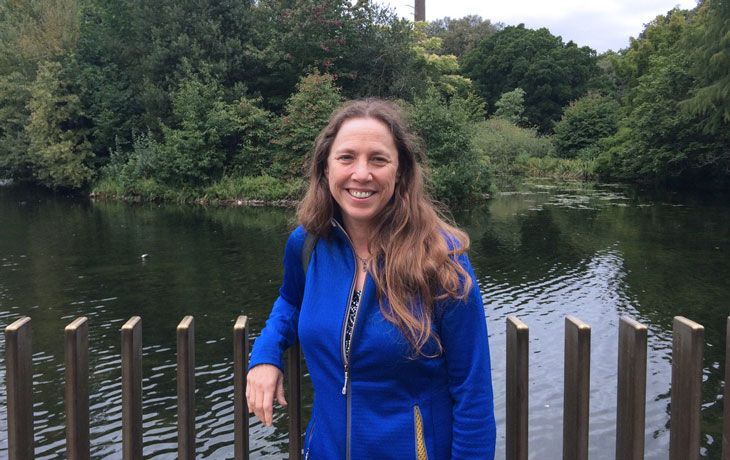 February 12, 2025
February 12, 2025 The honor recognizes Torn’s contributions to the understanding of soil carbon dynamics and her sustained leadership of the long-term monitoring of climate change.
ESPM staff member contributes art to Parks Stewardship Forum
 February 11, 2025
February 11, 2025 Kelly Redfearn Kinder’s digitally illustrated photograph graced the cover of the journal’s recent issue on Indigenous co-stewardship of public lands.
Lynn Huntsinger honored by the California Cattlemen's Association
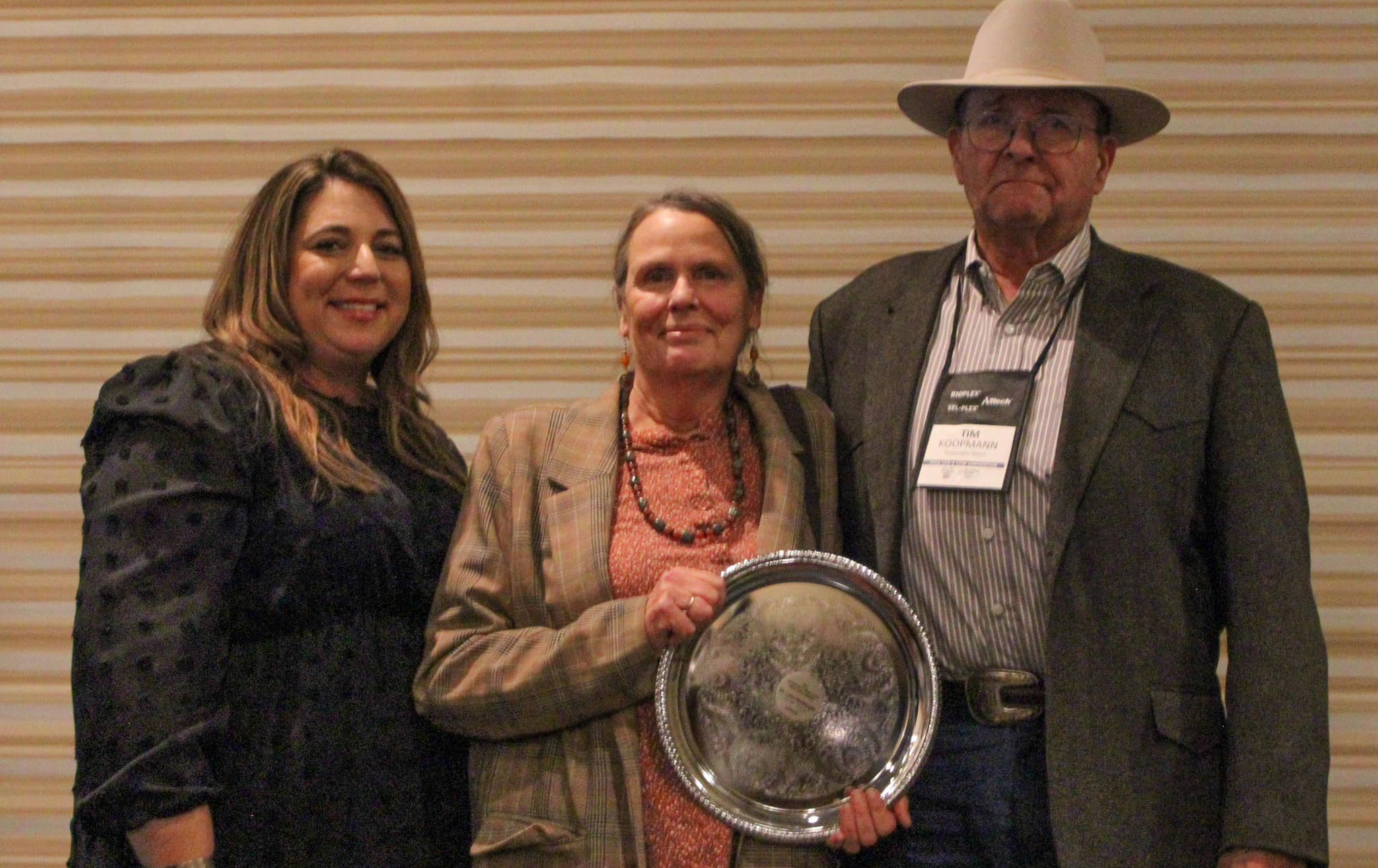 February 10, 2025
February 10, 2025 The ESPM professor was awarded the 2025 Gordon K. Van Vleck Memorial Award at the California Cattlemen's Convention.
After the LA wildfires, stories emerge of great loss, support and strength
 February 07, 2025
February 07, 2025 The devastating Palisades and Eaton fires, which ignited a month ago, affected many at UC Berkeley, including the family of ESPM professor Christopher Schell.
Dan Kammen on USAID, Clean Energy, and the Future of Global Development
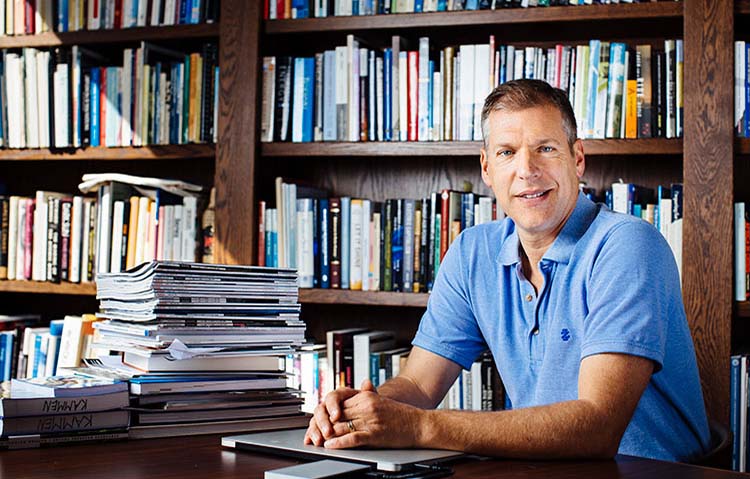 February 06, 2025
February 06, 2025 The Energy and Resources Group professor was interviewed about the consequences of dismantling USAID, what it means for clean energy and economic development worldwide, and how the U.S. might navigate global leadership in sustainability without its flagship development agency.
Student Spotlight: Michael Brand
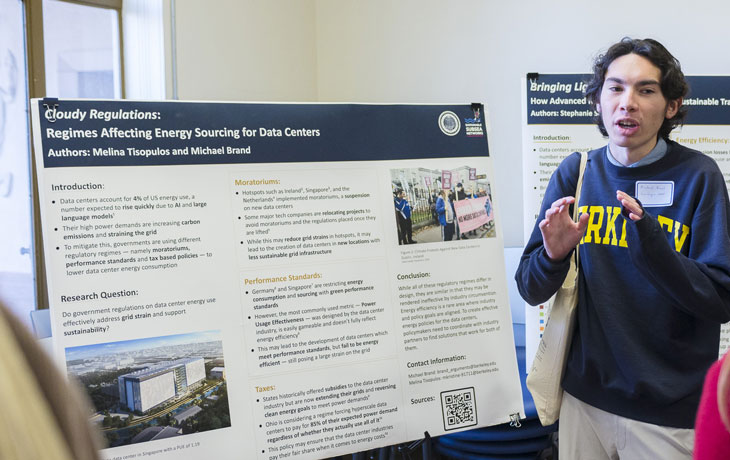 February 05, 2025
February 05, 2025 The second-year Environment Economics & Policy student was recently interviewed about his experience studying transoceanic internet cables through UC Berkeley's Undergraduate Research Apprentice Program.
Alum Zac Unger serving on the Oakland City Council
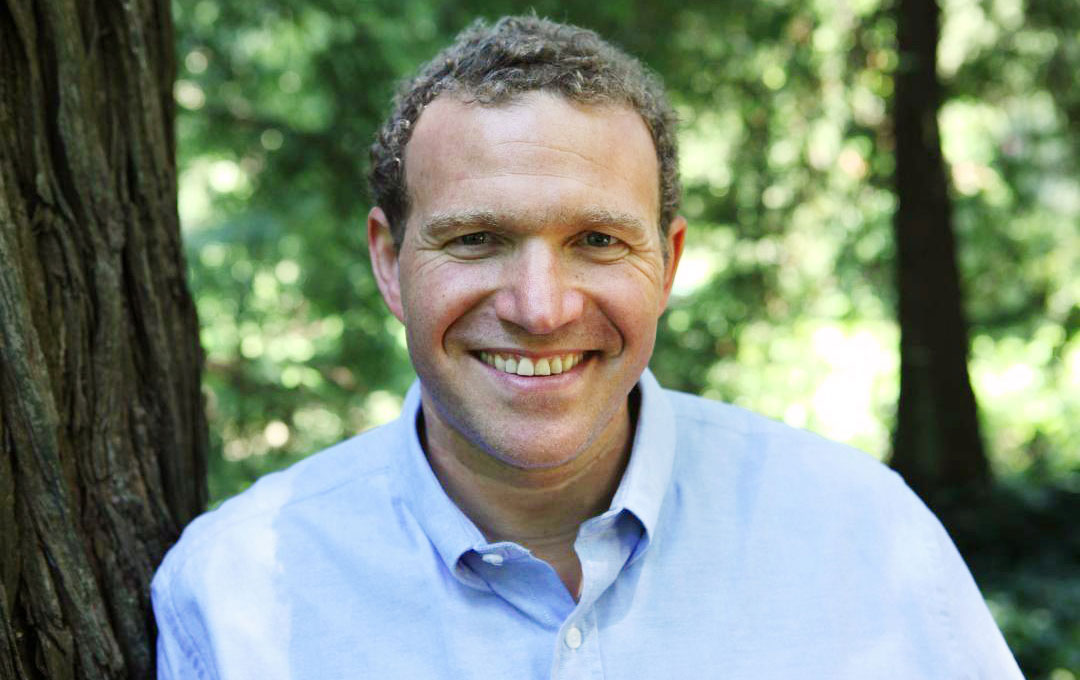 February 04, 2025
February 04, 2025 A graduate of the Range and Wildlife Management program, Unger was elected as Oakland’s District 1 Councilmember last November.
Balancing action and acceptance amidst rapid environmental change
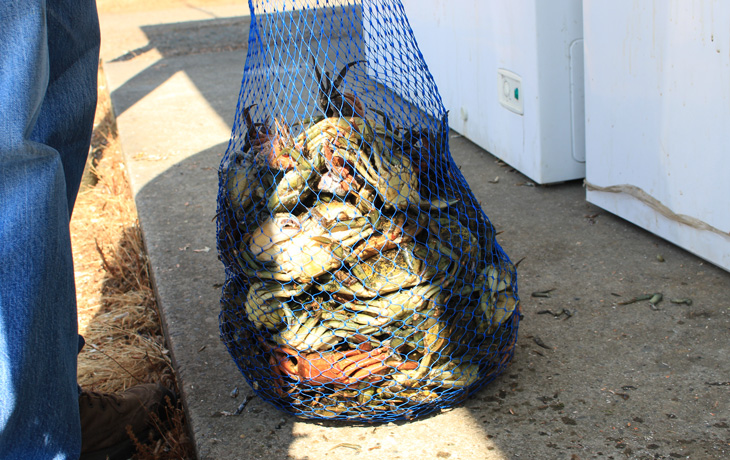 February 03, 2025
February 03, 2025 A new study led by ESPM graduate student Abby Keller may help ecosystem managers and decision-makers determine when it is best to accept rapid, irreversible ecological changes.
Coordinating interests is key to achieving clean energy goals
 January 31, 2025
January 31, 2025 A government is far likelier to achieve clean energy goals when its policies resolve conflicting interests between different stakeholders, according to new research led by ESPM professor Jonas Meckling.
Community and forest health intertwine in pinyon-juniper woodlands
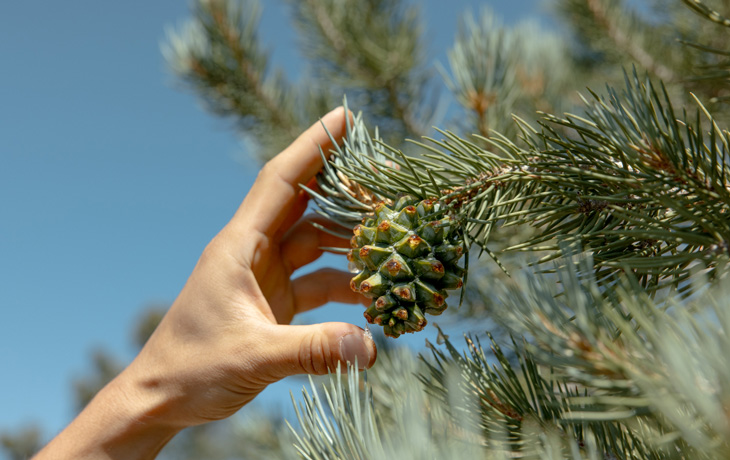 January 28, 2025
January 28, 2025 ESPM professor Miranda Redmond and researchers in her lab are collaborating with Stanford University, tribal nations, and California government agencies on an interdisciplinary project aimed at improving the resilience of pinyon-juniper woodlands.